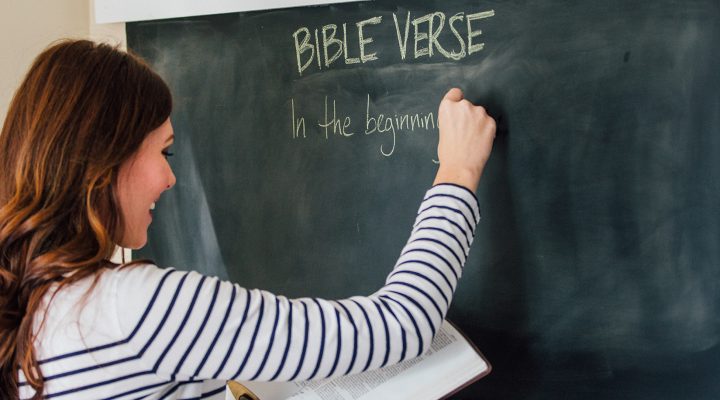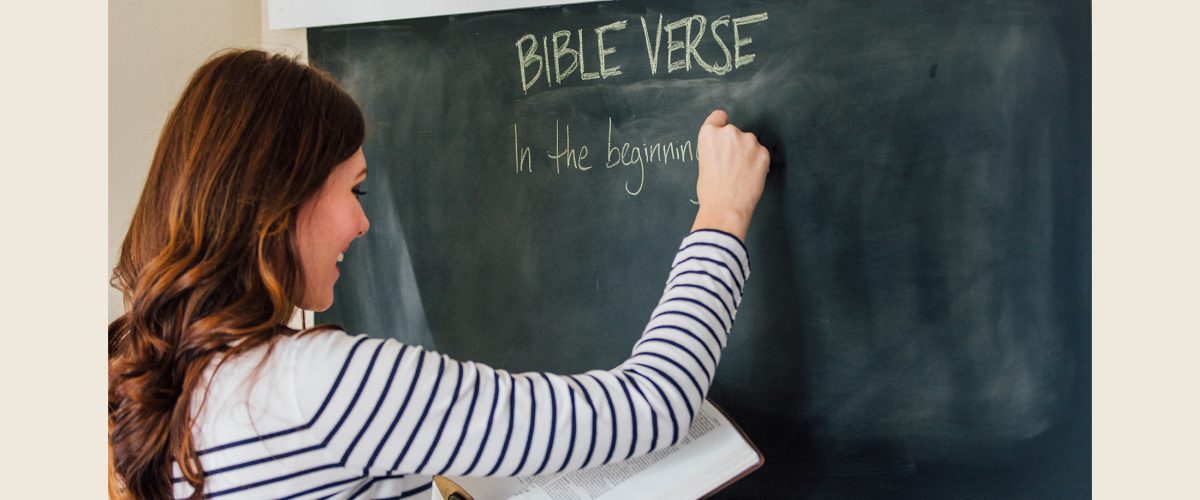I grew up going to Sunday school, starting with the “Cradle Roll” department of First Baptist Church of Decatur, Texas, the town where I was born. Like all the kids at that church, when I learned to read, I was given a King James Version of the Bible, zipper edition, black for boys, white for girls.
Sunday school taught me what the Bible said, if not always what the Bible meant. Its teachers were among my earliest mentors, laywomen in the “Beginner” and “Primary” years, and laymen when I entered the “Junior Department” and no longer was permitted to study the Bible with females.
Since the KJV was the textus receptus of that era, we learned multiple passages from memory. Even today, when preaching during Advent, I sometimes quote a long portion of the Luke 2 “Christmas story,” concluding that I could quote the entire chapter, “but I’d be showing off.”
Like many who grew up in the American South, Sunday school anchored me in gospel and church.
That was then, this is now.
Some 20 years ago, teaching undergraduate and graduate students at Wake Forest University, I started getting emails from students who said, “You make biblical references that you think we know about, but we didn’t grow up going to Sunday school, so we don’t know the stories. Could you provide more detail?”
A Gallup survey from March 2024 suggests “on balance, regular church attendance in the U.S. continues to decline across the board, particularly among Catholics.” The poll indicates “just three in 10 U.S. adults attend religious services regularly, 21% every week and 9% almost every week. A reported 11% attend religious services about once a month, while 25% seldom and 31% never attend.”
A 2023 essay in Convergence online magazine reported: “By 2020, the median worship attendance at most churches was 65. This is declining over time. The average age of people in congregations is now 57. This means that if children are present, they may be brought by grandparents rather than parents. As of 2020, 13.8% of regular participants in congregations are under 12. This means that if you are among the 69% of churches in the U.S. with 100 or less attending worship, you likely have less than 14 actively participating children.”
“Supporters of such endeavors seem to be asking the public schools to do the church’s job for them.”
Among many reasons for the continuing attempt to introduce “Bible curriculum” in American/Southern public education, the decline in Sunday school attendance is surely prominent. Supporters of such endeavors seem to be asking the public schools to do the church’s job for them, Christianizing a generation who know not Sunday school.
Oklahoma and Texas are at the forefront of that movement. BNG reported recently that Oklahoma Superintendent of Public Instruction Ryan Walters “emailed state school superintendents a ‘Mandatory Announcement’ linked to a video titled ‘Prayer for the Nation.’” Walters demanded all Oklahoma schools play the video for their students and “send it home to their parents.” Walters led in requiring the Bible curriculum in Oklahoma schools and requires all teachers to be prepared to teach such courses, utilizing the NKJV version that includes the Constitution and Declaration of Independence. Coincidentally, only the $55 “Trump Bible” appears to accommodate that mandate.
When a 21st-century government official “mandates” prayer or other religious observances for the general public, that person already has trespassed, indeed, violated the First Amendment. We might remember that refusing state-mandated “prayers by the book” got early Baptists jailed, even beaten, in colonial Puritan New England and Anglican Virginia.
And then there’s Texas, my native state, where many of my former Sunday school and Royal Ambassador (Google it) teachers/mentors retold those stories and set that early Baptist obsession with and dissent for religious liberty so deeply into my soul and psyche that it stuck there for life.
On Nov. 22, the Texas Board of Education, by an 8-7 vote, approved the “Bluebonnet Learning” curriculum for public schools grades K-5, surely the first stage of bringing a Bible curriculum into all Texas public schools. The program is optional, but the state sweetens the pot by providing $60 per student to the schools that acquiesce, a kind of governmental indulgence selling. (Google “indulgences.”)
Dissent was immediate. The Baptist Joint Committee’s Amanda Tyler told AP: “This curriculum is not age-appropriate or subject-matter appropriate in the way that it presents these Bible stories,” and the children toward whom it is directed, “are simply too young to tell the difference between what is a faith claim and what is a matter of fact.”
BJC’s critique includes this assessment:
“The Goldilocks fairy tale is used to teach children about the Sermon on the Mount and the Golden Rule.”
The proposed curriculum is replete with overtly Christian and other biblical references commonly taught in churches, and it uses stories about biblical figures such as King David and Jesus to address academic subjects and in a way that depicts religious beliefs as facts while offering minimal and sometimes disparaging information about other world religions. The Goldilocks fairy tale is used to teach children about the Sermon on the Mount and the Golden Rule.
The material also contains misleading and inaccurate material taught to children as young as kindergarten, and it cherry-picks Founding Era history to tell a one-sided story that overstates the religiosity of the Founders and ignores concerns about government intrusion into religion and “no establishment” principles that led to the First Amendment of the U.S. Constitution.
BJC’s concern opens doors to multiple questions and controversies including:
- How will teachers be trained to teach the Bible? One of the state’s Republican congressmen announced his opposition to the program unless the teachers were “seminary trained.”
- Will teachers be subject to theological approval by 1) school administrators 2) pastors in the specific district 3) parents of varying doctrinal and denominational affiliation? Texas legislators already have confronted opposition to the hiring of unlicensed “pastoral counselors” as an option to the traditional school counselor profile.
- Texas is flooded with a cacophony of religious groups espousing doctrines and practices that contradict, critique and condemn each other. What will they do when their particular “orthodoxies” collide or are undermined in the classroom?
- And what of those religious traditions that appear to be “left behind” by the curriculum’s Christianity-heavy emphases? Do Jews, Muslims, Buddhists, Sikhs, Bahais or “nones” (Google “nones”) refuse to allow their children to participate in what appears to be Christian catechetical public-school classes?
- And then there’s biblical inerrancy. Will some Texas inerrantists insist that teachers affirm, perhaps even sign, the Chicago Statement on Biblical Inerrancy before approaching Texas children? Trust me, if they came for the Southern Baptist schools, they’ll come for the public ones as well.
Classes on religion can be helpful, but not if, in a religiously pluralistic democratic society, they privilege one religion, even the majority religion, over others. In fact, imposing such studies on the public schools may create more “nones” than “Bible believers.”
Public schools are poor substitutes for the Sunday alternative, or a reasonable gospel facsimile thereof.
This Advent, the phrase “And it came to pass in those days that a decree went out from Caesar Augustus” carries an additional contemporary and ominous warning.
Bill Leonard is founding dean and the James and Marilyn Dunn professor of Baptist studies and church history emeritus at Wake Forest University School of Divinity in Winston-Salem, N.C. He is the author or editor of 25 books. A native Texan, he lives in Winston-Salem with his wife, Candyce, and their daughter, Stephanie.
Related articles:
The shocking things I witnessed at the Texas Board of Education | Analysis by Mara Richards Bim
Texas Board of Education gets huge pushback on religion-infused curriculum
Ryan Walters orders all Oklahoma schoolchildren to pray for Trump



